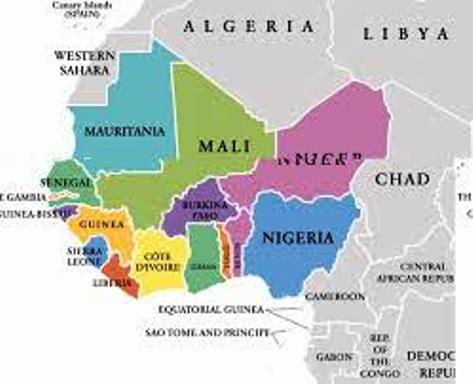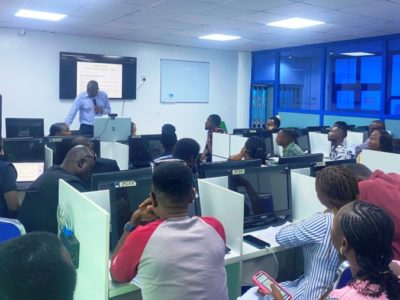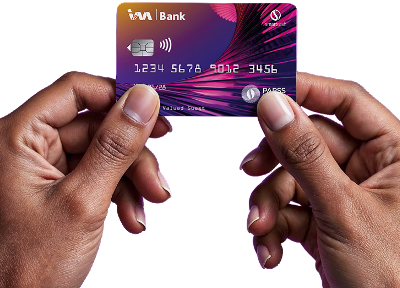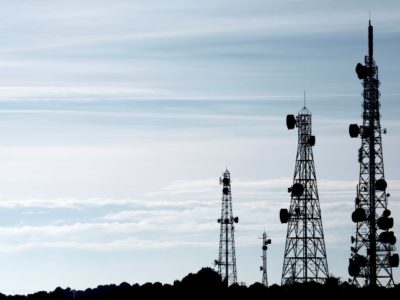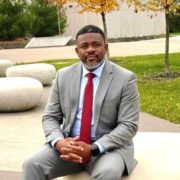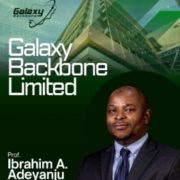Matters eRising with Olusegun Oruame
Advocates of Nkrumah’s eternal philosophy of an African continent free of artificial boundaries created by colonial rule would be gladdened by a small innocuous event November 9, 2004 inside the Golden Tulip Hotel, Accra, Ghana.
A small event no doubt. But the import of what it portends was not lost on the audience and that includes the Nigerian High Commissioner to Ghana his excellency Dr Olatunji Kolapo, the Ghanaian Minister of Communications and Technology, Mr. albert Kan-Dapaah and the key private players that made the event possible, CWG (Ghana) limited and theSoftTribe (Ghana).
Triumph of partnership across African artificial boundaries
CWG (Ghana) Limited, an extension of Computer Warehouse group (Nigeria) Limited was celebrating a year of doing business and growing partnership in Ghana. But both the High Commissioner and the Minister of Communications were celebrating something else -the Triumph of partnership across African artificial boundaries by two African companies. They have between them, almost 200 million people to impact their business processes on with their relationship.
“CWG/ theSoftTribe example has shown is that indigenous entrepreneurs across borders can also be involved in high stake investment within the sub-region.”
The relationship between the two companies symbolized a living testimony of what Kwame Nkrumah, pioneer political leader of an independent Ghana, saw in the 50s. He championed this cause in the 50s, thereafter and thereon. Africa shares a common destiny in the same manner in which it has it has shared a common tragedy. I mean the tragedy of slavery. The consequent depopulation of its vibrant workforce and colonialism with the resultant near-erasure of its cultural identity.
Nkrumah’s vision was simple: a rebirth of Africa’s lost serenity and brotherhood. It was a vision encapsulated in the political and economic dialectics that make up Nkrumahnism. The same vision, as followers of the late sage Nnamdi Azikiwe would agree, is what Zikism is all about.
That innocuous event was Africa seeking restoration in terms of political and economic independence. A continent positioned to work in unity towards the sustenance of its continuous progress.
Those who share that vision believe that it can find effective expression in IT. And they have been in the forefront of the struggle for an African Renaissance in IT. The Hon. Commissioner and His Excellency may not be Nkrumah’s apologists but their statements embodied what Nkrumah expressed several decades back. He said that Ghana’s Independence was nothing until other African countries still under colonial tutelage gained their independence.
IT and the theme of African Renaissance
We dare say that IT advancement in Ghana, Nigeria and elsewhere on the continent means nothing without a platform for shared experience and mutual benefits. That again is the underlying philosophy of NEPAD (New Economic Platform for Africa’s Development) where the theme of African Renaissance is so poignant.
Africans must work together to form a common pool of IT skills set. They must work to advance a common course for the development of the continent’s IT superstructure. And to drive technology entrepreneurship beyond borders. We must commend the CWG and theSoftTribe as they perform the arduous tasks of resolving some of the continent’s thorniest problems in communication through a bond that transcends colonial boundaries.
The Ghanaian government deserves commendation for keeping to the ethos of the founding fathers of Ghana. Ghana remains a shining light to the Spirit of African Brotherhood.
But there is also plenty of work left to be done. Africa remains the least IT-enabled continents with the world’s poorest countries. Specifically, the GDP per capita for the countries in the sub-region range from only $200 to $600. There are common challenges that include irregular or non-existent electricity supplies. Only a tiny fraction of the population has access to IT and road networks are limited. Naturally, cost of air transport is prohibitive.
Africa: Barriers to integration and development
There is a greater barrier in the movement of people and goods. The border posts are unnecessarily congested. Visa requirements completely negate what Africa aspires to achieve in the committee of states. Added to all these aches are incoherent and zip zap politics that do not help promote pervasive IT infrastructure.
Most tax regimes are not favourably disposed to tagging IT items outside of the ‘luxury items list.’ But there have been notable efforts in some countries to reduce import duties on computers, communications equipment and peripherals. One recent report on the sub-region noted. But ECOWAS is haunted by the brain drain syndrome. There is a ‘general low level of education and literacy among the population. This has created a great scarcity of skills and expertise (at all levels, from policy-making down to end-user).
What does this mean? More work for the government and decision-makers in the sub-region. Nigeria, Ghana and Senegal appeared to be the three countries with sufficient capacity to drive IT development across boundaries in the sub-region. Cote D’Ivoire is in turmoil. Liberia and Sierra Leone are still grappling with the Pains of a post-war economy.
Nigeria, Ghana and Senegal can drive NEPAD objectives
The onus is on the three countries to pursue a common IT agenda for the good of all. Sustainable actions must be taken to integrate skilled Africans in diaspora as in actualising the NEPAD objectives just as barriers promoting inter-African investment must be broken.
What the CWG/ theSoftTribe example has shown is that indigenous entrepreneurs across borders can also be involved in high stake investment within the sub-region. This is irrespective of the nationality stamped on their international passports. Entrepreneurs can change the game for good if given the chance to network resources and skill for the ultimate goal of the continent. This is what Ghana, Nigeria and Senegal must aggressively pursue on behalf of all ECOWAS countries as a first step to build bridges across the entire continent.
In this wise, we also commend the Standard Trust Bank (STB) and Ovation international, companies promoted by Nigerians with strong presence in Ghana and championing the evergreen philosophy that Nkrumah lived and died for.

